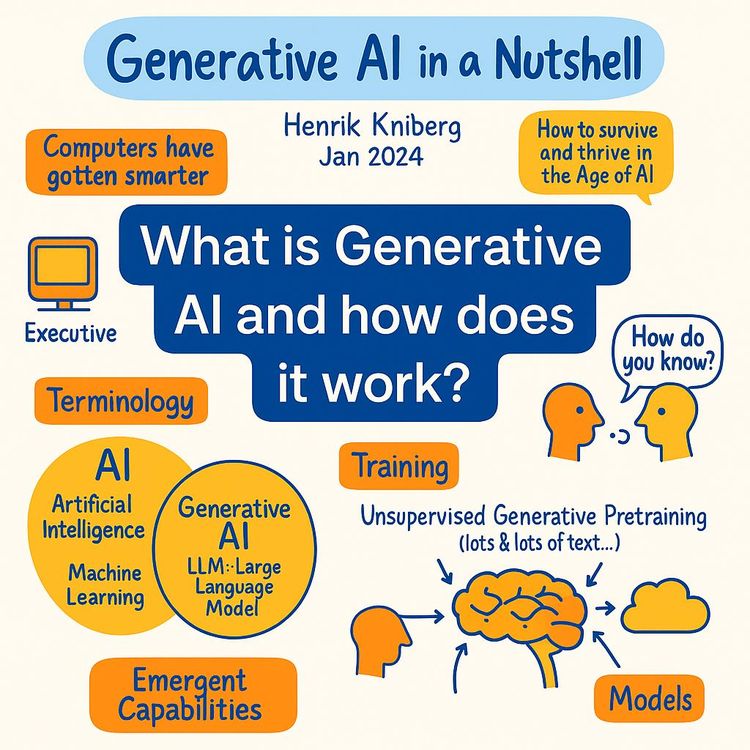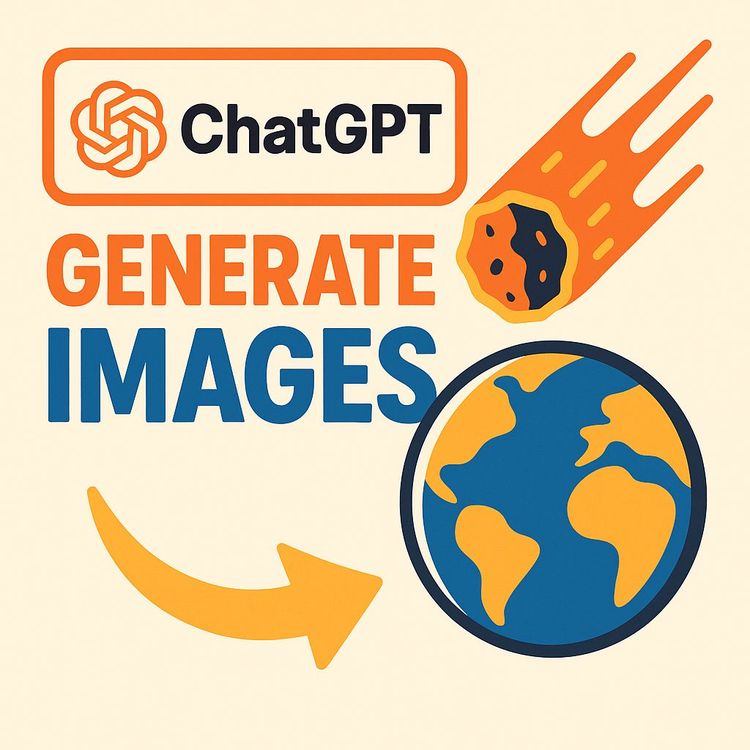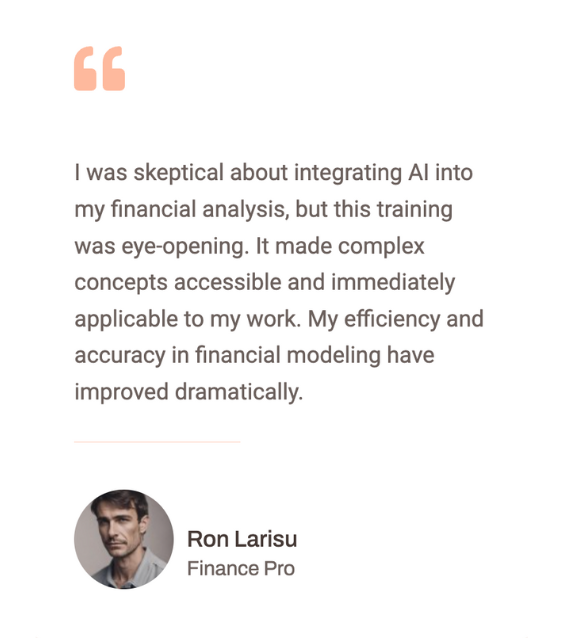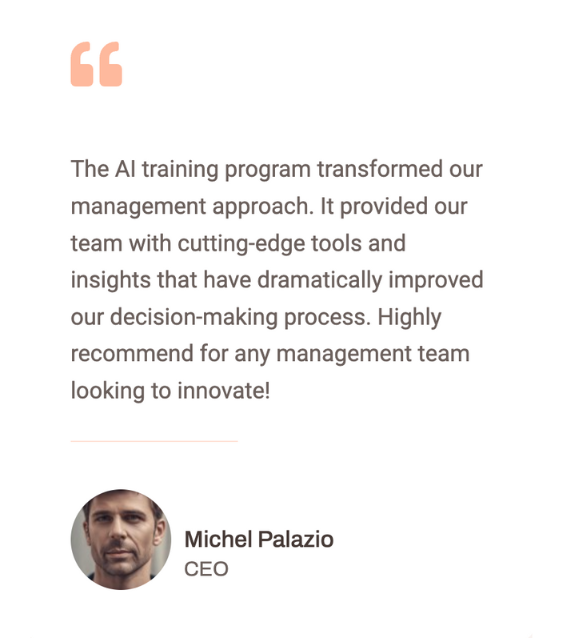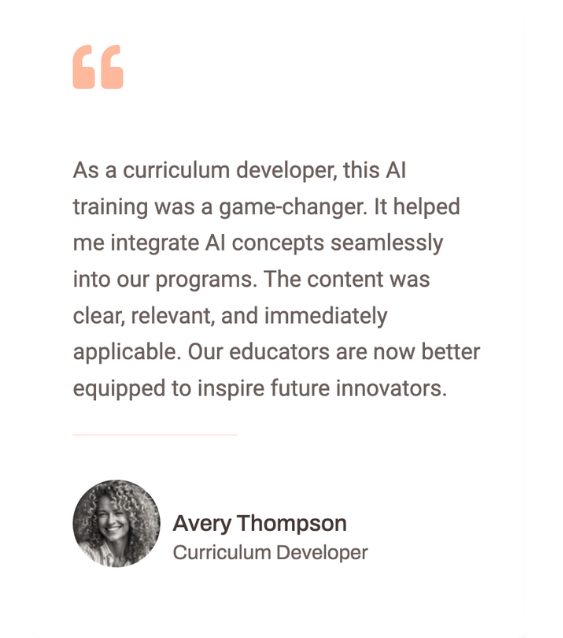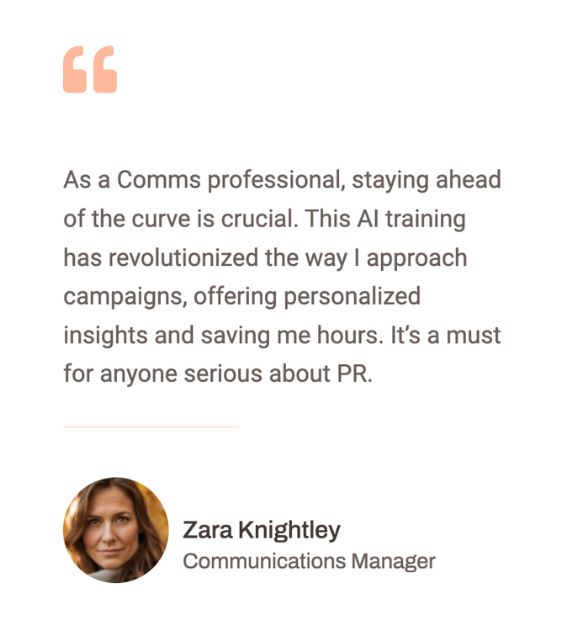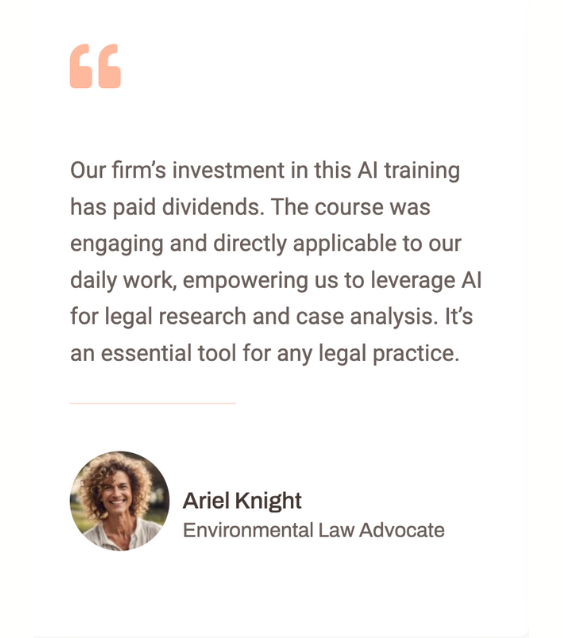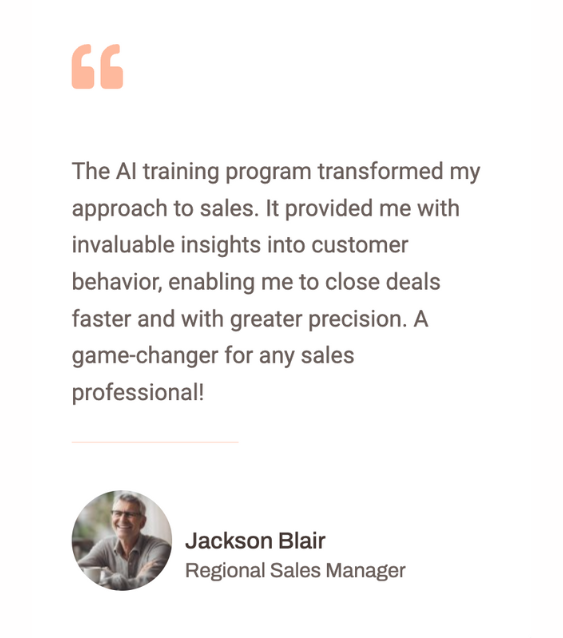Video Course: How to Master ChatGPT in Accounting & Finance Full Course
Elevate your finance career with our course on mastering ChatGPT in accounting and finance. Gain the skills to leverage AI for enhanced productivity, insightful decision-making, and efficient data analysis. Embrace the future of finance today.
Related Certification: Certification: ChatGPT Skills for Accounting & Finance Professionals
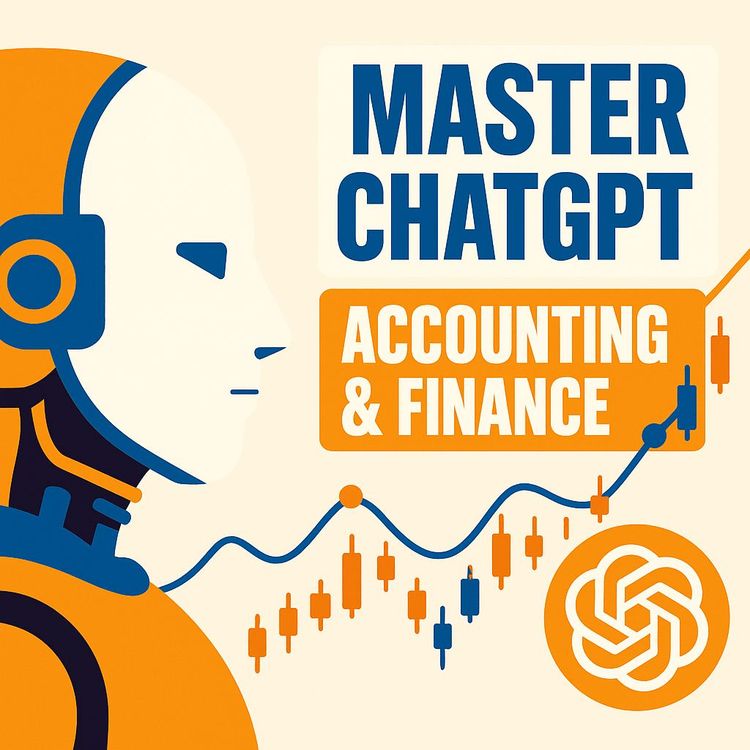
Also includes Access to All:
What You Will Learn
- Use the CSI and FBI prompting frameworks for finance tasks
- Automate financial reports using ChatGPT, Excel and Python
- Perform trend analysis, forecasting and financial modeling with AI
- Apply data confidentiality and ethical best practices
Study Guide
Introduction
The 'Video Course: How to Master ChatGPT in Accounting & Finance Full Course' is designed to equip finance professionals with the skills to effectively utilize ChatGPT and other Large Language Models (LLMs) in their daily tasks. This course is valuable because it addresses the evolving role of AI in accounting and finance, helping professionals augment their capabilities, improve productivity, and tackle complex tasks like data analysis and financial modeling. By mastering these tools, accountants and finance experts can become champions of AI adoption within their organizations, leading to more efficient and insightful decision-making.
The Importance and Timeliness of AI Adoption
AI is no longer a futuristic concept; it's a present-day necessity. Engaging with AI tools like ChatGPT puts finance professionals ahead of the curve. As Nicholas Bushe highlights, those who embrace AI today position themselves as leaders in the field. Given their proficiency with data and tools like Excel and ERP systems, finance professionals are well-suited to lead AI initiatives, leveraging their comprehensive understanding of business data and processes.
Example:
Consider a finance team tasked with forecasting quarterly earnings. By using ChatGPT, they can quickly gather insights from historical data and generate predictive models, thus enhancing their forecasting accuracy and efficiency.
Example:
A CFO can use ChatGPT to automate the generation of financial reports, allowing for more time to focus on strategic decision-making rather than routine data compilation.
Understanding ChatGPT and its Potential
ChatGPT is akin to a highly capable trainee, one who writes swiftly and accurately, with a vast knowledge base that includes accounting principles and Excel techniques. This AI tool is designed to augment human roles, not replace them. By assisting with routine tasks, ChatGPT allows professionals to focus on more strategic and analytical work.
Example:
A junior accountant can use ChatGPT to draft financial summaries, which can then be reviewed and refined by senior staff, saving time and ensuring accuracy.
Example:
ChatGPT can assist in preparing tax documents by organizing and analyzing relevant data, enabling tax professionals to focus on compliance and strategic tax planning.
Roadblocks to AI Adoption and Overcoming Them
One major roadblock is the misuse of AI tools as mere search engines, leading to generic and unhelpful results. Overcoming this requires understanding how to ask effective questions and provide sufficient context. The fear of job displacement is another challenge, but it's crucial to view AI as a collaborative assistant.
Example:
Instead of typing "financial report" into ChatGPT, a more effective prompt would be: "Generate a financial report for Q1, focusing on revenue growth and cost reduction strategies."
Example:
To address job displacement fears, organizations can provide training sessions showing how AI tools enhance rather than replace human roles, such as by automating mundane tasks and freeing up time for strategic analysis.
The CSI and FBI Frameworks for Effective Prompting
Effective prompting is key to harnessing the full potential of ChatGPT. The CSI framework involves providing Context, being Specific, and giving clear Instructions. The FBI framework further refines this by specifying Format, outlining a Blueprint, and defining an Identity for ChatGPT.
Example:
Using the CSI framework: "As a financial analyst, I need a report on client overdue balances. Please draft a communication that highlights overdue amounts and suggests payment plans."
Example:
Applying the FBI framework: "Create a bullet-point list for a Dunning letter, include potential legal actions, and write from the perspective of a lawyer."
Applicability Across Accounting and Finance Roles
The CSI and FBI frameworks are versatile tools that can be applied across various roles in accounting and finance, from junior accountants to CFOs, and across specializations like tax and treasury. This adaptability allows professionals at all levels to benefit from AI assistance.
Example:
A tax specialist can use these frameworks to draft client communications, ensuring clarity and compliance with tax laws.
Example:
A treasury analyst can apply these methods to generate reports on cash flow management, providing insights into liquidity and investment strategies.
Data Confidentiality and Ethical Use
Data confidentiality is a critical concern when using AI tools. Without specific agreements with AI providers, confidential information should not be input into these systems. Instead, professionals can discuss general scenarios or best practices without revealing sensitive data.
Example:
Instead of uploading sensitive financial data, a user can describe the data structure and ask ChatGPT for guidance on performing analysis using Excel formulas.
Example:
A finance manager can use ChatGPT to explore best practices for financial reporting without sharing proprietary data, ensuring compliance with company policies.
ChatGPT and Excel for Data Analysis
ChatGPT can significantly enhance data analysis capabilities, particularly when integrated with Excel. Users can describe their data structure and receive step-by-step instructions on performing tasks like trend analysis, even without direct data uploads.
Example:
A user can ask ChatGPT, "How do I identify trends in my Excel data set that tracks monthly sales?" and receive a detailed guide on using formulas and charts.
Example:
By describing a dataset's structure, ChatGPT can help generate visualizations and insights, such as identifying seasonal sales patterns.
The Power of Python Integration
Python is increasingly important for financial analysis due to its ability to handle large datasets and perform complex calculations. ChatGPT can generate Python code, lowering the barrier to entry for those without extensive coding knowledge.
Example:
ChatGPT can help generate Python scripts to merge multiple sales data files, streamlining data processing and analysis.
Example:
Using ChatGPT, a finance team can create advanced visualizations in Python, such as interactive dashboards, that provide deeper insights than traditional Excel charts.
Limitations and Best Practices with Financial Data
While ChatGPT is a powerful tool, it should not be solely relied upon for critical calculations without verification. It's best used as a consultant for generating formulas or code, which can then be executed in secure environments.
Example:
For long financial reports, ChatGPT can suggest structure and content, but calculations should be verified in Excel or a similar tool for accuracy.
Example:
ChatGPT can assist in defining methodologies for financial modeling, but the actual implementation should be carefully planned and executed by experienced professionals.
Introduction to the "ChatGPT Mastery for Management Accountants" Course
This course offers comprehensive training on integrating AI into daily accounting and finance tasks. It covers effective prompting, document creation, problem-solving, and leveraging AI with tools like Excel, PowerPoint, and Python. With a storytelling approach and real-world examples, the course ensures practical application of AI skills.
Example:
The course includes modules on using ChatGPT for improving cash flow analysis, providing actionable insights for financial decision-making.
Example:
Participants learn to automate routine tasks, such as generating financial reports, freeing up time for strategic planning and analysis.
Conclusion
By completing the 'Video Course: How to Master ChatGPT in Accounting & Finance Full Course,' you are now equipped with the knowledge and skills to effectively utilize AI tools in your professional tasks. This course emphasizes the thoughtful application of AI, ensuring that you can enhance productivity, improve decision-making, and lead AI adoption within your organization. Remember, the key to mastering ChatGPT lies in understanding its capabilities, applying effective prompting frameworks, and adhering to best practices for data confidentiality and ethical use. As you continue to explore and integrate AI into your workflow, you'll find new opportunities to drive innovation and efficiency in the accounting and finance sectors.
Podcast
There'll soon be a podcast available for this course.
Frequently Asked Questions
Welcome to the FAQ section for our 'Video Course: How to Master ChatGPT in Accounting & Finance Full Course'. This resource is designed to address common questions and provide insights into effectively using ChatGPT in the accounting and finance sectors. Whether you're a beginner or an experienced professional, this FAQ aims to enhance your understanding and application of AI tools in your work.
1. What is ChatGPT and why should management accountants be interested in it?
ChatGPT is likened to a highly skilled trainee who can write quickly, possesses excellent English skills (potentially better than native speakers), and has absorbed a vast amount of information, including general knowledge, accounting principles, KPI calculations, and Excel usage. Management accountants should be interested because this tool can act as an intelligent assistant, capable of answering questions and aiding in various tasks. It's designed to augment their work, making them more productive and efficient, rather than replacing their jobs entirely. By mastering ChatGPT, finance professionals can become champions of AI adoption within their businesses.
2. What are the common roadblocks to adopting AI tools like ChatGPT in finance?
A significant roadblock is using AI tools merely as search engines like Google, by inputting only keywords. This often results in generic answers that aren't directly applicable to specific professional tasks. Consequently, users may become disillusioned and perceive the tool as unhelpful. Another challenge is the initial skepticism and fear of AI replacing jobs, despite its intended role as an augmentation tool. Overcoming these requires understanding the nuances of prompting and recognising that AI is a collaborative assistant that needs to be guided effectively.
3. How can finance professionals improve their interactions with ChatGPT to get more useful outputs?
The key is to treat ChatGPT like a new trainee or assistant, providing clear context, specific details about the problem, and explicit instructions on the desired output. The "CSI" framework (Context, Specific, Instruction) is helpful: provide background information, clearly define the issue, and state precisely what you want the AI to do. For more advanced prompting, the "FBI" framework can be added: specify the Format, outline the Blueprint (expected content), and optionally define an Identity for ChatGPT to adopt (e.g., "write like a lawyer"). This iterative process of refining prompts leads to more tailored and valuable results.
4. Can the CSI and FBI prompting frameworks be applied to all roles within accounting and finance?
Yes, these frameworks are versatile and can be beneficial across all levels, from junior accountants to CFOs, and across different specialisations such as tax and treasury. The principles of providing context, being specific, giving clear instructions, and considering format and content are universally applicable to any task where AI assistance is sought. Even tasks like drafting emails, building templates, or creating project plans can be improved by using these frameworks.
5. What are the key considerations regarding confidentiality and using ChatGPT with financial data?
Confidentiality is paramount. If a company doesn't have a specific agreement with the AI tool provider (like OpenAI for ChatGPT, Microsoft, or Google), then confidential company data should not be directly input into these platforms. Sharing such information could breach contractual confidentiality clauses. However, professionals can still gain value by discussing general scenarios or asking for best practices without revealing specific data, much like discussing challenges with a former colleague. For data analysis, users can describe the structure of their data and ask for guidance on how to perform analysis in tools like Excel without uploading sensitive files. If a company has a secure contract with an AI provider that ensures data is not used for model training, then more direct data interaction may be permissible, adhering to the contract's terms.
6. Can ChatGPT analyse Excel files to identify trends?
Yes, particularly with ChatGPT-4, users can upload files (assuming their company's policies and agreements with the AI provider allow it). ChatGPT can then use its underlying capabilities, often leveraging Python, to analyse the data, identify trends, create visualisations, and offer recommendations. If direct data upload isn't permitted, users can describe their data structure to ChatGPT and ask for step-by-step instructions on how to perform trend analysis within their own Excel environment, including suggesting relevant formulas and graph types.
7. How can Python be integrated with ChatGPT for more advanced financial analysis, and is coding knowledge required?
ChatGPT can generate Python code to perform various financial tasks, such as combining multiple data files, data cleaning, complex calculations, and advanced visualisations that might be cumbersome or impossible in Excel alone. Platforms like Google Colab provide an accessible environment to run this Python code. The need for extensive coding knowledge is reduced because ChatGPT can write the code based on user prompts. Users need to understand how to describe their needs clearly to ChatGPT to generate the appropriate code and then how to execute this code in a Python environment. This democratises access to powerful data analysis capabilities previously limited to those with coding expertise.
8. How reliable are ChatGPT's calculations and its ability to handle long financial reports?
While ChatGPT is excellent at generating text and code, it should not be relied upon for critical calculations in long financial reports without verification. Its primary function as a generative AI means its outputs are based on probability. For calculations requiring certainty, it's better to use ChatGPT to generate Excel formulas or Python code and then execute these in their respective environments where the process and results can be audited. Even OpenAI's own financial controllers reportedly use ChatGPT to generate code for analysis but run the calculations in their secure internal systems. This ensures accuracy, auditability, and scalability. For brainstorming and initial analysis of trends, ChatGPT can be a valuable starting point.
9. What is the common mistake people make when using AI tools like ChatGPT?
The common mistake is using AI like Google, simply typing keywords and expecting useful answers. This often leads to generic or superficial responses that don't address specific needs, causing users to dismiss the tool as unhelpful. To avoid this, users should engage in more detailed prompting, providing context and specific instructions to get more relevant and actionable outputs.
10. What is the "aha moment" when learning to use AI tools effectively?
The "aha moment" occurs when people realise that getting the best results from AI is an iterative process involving refining prompts and having a discussion with the tool, rather than expecting perfect answers immediately. They understand that with a few attempts, they can significantly improve the quality of the output. This realisation helps users to approach AI interactions as a collaborative process, leading to more effective use of the technology.
11. How can ChatGPT assist with developing a costing system for a company?
ChatGPT can help model a costing system by acting as a teacher or consultant, guiding users through different costing methods based on their company's specifics and data. It can also assist in determining how to implement the chosen method within existing ERP systems or Excel, and help troubleshoot issues that arise. This guidance can be invaluable for companies looking to refine their costing strategies and ensure they are aligned with best practices.
12. Why is learning Python important for finance professionals in the age of AI?
Learning Python is becoming crucial because it can handle much larger datasets than Excel, create advanced visualizations, automate tasks involving various file types, and is essential for running the algorithms needed for AI-powered forecasting and complex financial analysis. Python's versatility makes it a valuable tool for finance professionals looking to enhance their analytical capabilities and keep pace with the evolving demands of the industry.
13. What are the advantages of using Python over Excel for large financial datasets?
Python can process significantly larger datasets beyond Excel's limitations, create visualizations not possible in Excel (like heatmaps), automate tasks across different file formats, and run complex algorithms for forecasting and advanced analysis. These capabilities make Python a preferred choice for handling extensive data analysis tasks that require more power and flexibility than Excel can provide.
14. How can ChatGPT help with trend analysis in Excel files without uploading data?
Even without uploading data, users can describe the structure of their Excel file and ask ChatGPT for guidance on how to identify trends using Excel formulas or step-by-step instructions. This allows them to perform the analysis within their secure environment, leveraging ChatGPT's ability to provide detailed methodological advice and recommendations for tools and techniques.
15. What strategies can companies adopt to mitigate data confidentiality risks when using AI?
Companies can mitigate data confidentiality risks by not inputting sensitive information into AI tools unless there is a secure agreement in place. They should focus on using AI for general guidance and best practices without revealing specific data. Additionally, companies can implement strict data governance policies, educate employees on safe AI usage, and ensure any AI provider contracts include robust data protection clauses.
16. What are the ethical implications of using AI in financial decision-making?
AI in financial decision-making raises ethical concerns such as bias in AI models, transparency of decision processes, and accountability for AI-driven decisions. Companies should implement safeguards and guidelines to ensure responsible use, including regular audits of AI systems, clear documentation of AI decision-making processes, and ensuring human oversight in critical decisions. These measures help maintain trust and ensure that AI technologies are used ethically and responsibly.
17. How can ChatGPT be used as a starting point for financial reporting?
ChatGPT can be used to draft initial versions of financial reports, generate insights from data summaries, and provide templates or outlines for comprehensive reports. It can also assist in identifying key trends or anomalies that should be highlighted in reports. By using ChatGPT as a starting point, finance professionals can streamline the reporting process and focus their efforts on analysis and decision-making rather than initial drafting.
18. How can ChatGPT assist in creating financial models?
ChatGPT can guide users through the process of building financial models by providing step-by-step instructions, suggesting formulas, and offering advice on structuring models for different scenarios. It can also help troubleshoot issues and provide recommendations for improving model accuracy and reliability. This makes ChatGPT a valuable tool for both novice and experienced financial analysts looking to refine their modeling skills.
19. What are the challenges of integrating AI tools like ChatGPT into existing financial systems?
Challenges include ensuring compatibility with existing software, managing data privacy and security, and overcoming resistance to change within the organization. Successful integration requires careful planning, clear communication of AI benefits, and training for staff to ensure they are comfortable and capable of using new tools. Addressing these challenges is crucial for maximizing the potential benefits of AI integration.
20. What are some common misconceptions about using AI in finance?
Common misconceptions include the belief that AI will fully automate finance jobs, that it can replace human judgment entirely, or that it is infallible. In reality, AI is a tool designed to augment human capabilities, requiring human oversight and input to function effectively. Understanding AI's role as a collaborative partner rather than a replacement is essential for leveraging its full potential in finance.
21. How does ChatGPT handle complex financial queries?
ChatGPT processes complex financial queries by breaking them down into simpler components, using its training data to provide informed responses. It can offer insights, suggest methodologies, and generate relevant content based on user input. However, for highly complex queries, it may require iterative prompting and refinement to ensure accuracy and relevance.
22. Can ChatGPT be used for financial forecasting?
ChatGPT can assist in financial forecasting by suggesting models, providing historical data insights, and generating scenarios based on input parameters. While it can guide the forecasting process, it should be used in conjunction with traditional forecasting tools and human expertise to ensure accuracy and reliability. ChatGPT's role is to enhance the forecasting process through its ability to process large amounts of information and offer diverse perspectives.
23. How does ChatGPT support financial decision-making?
ChatGPT supports financial decision-making by providing data analysis, generating insights, and offering recommendations based on available information. It can help identify trends, evaluate options, and simulate potential outcomes. By acting as an analytical assistant, ChatGPT enables finance professionals to make more informed decisions, backed by data-driven insights.
24. What are the benefits of using ChatGPT for financial training and education?
ChatGPT can serve as a personalized tutor, providing explanations, answering questions, and offering practice problems tailored to the learner's needs. It can simulate real-world scenarios, helping learners apply theoretical knowledge to practical situations. Using ChatGPT for training enhances accessibility to learning resources, allowing for flexible and adaptive education in finance.
25. How can ChatGPT enhance customer service in financial institutions?
ChatGPT can automate routine inquiries, provide instant responses to common questions, and assist with troubleshooting issues. It can also offer personalized financial advice based on customer profiles, improving the overall customer experience. By handling basic service tasks, ChatGPT allows human agents to focus on more complex customer needs, enhancing service efficiency and satisfaction.
Certification
About the Certification
Show the world you have AI skills—discover practical ways ChatGPT can streamline workflows, enhance reporting, and simplify complex financial tasks. Stand out in accounting and finance with future-ready expertise.
Official Certification
Upon successful completion of the "Certification: ChatGPT Skills for Accounting & Finance Professionals", you will receive a verifiable digital certificate. This certificate demonstrates your expertise in the subject matter covered in this course.
Benefits of Certification
- Enhance your professional credibility and stand out in the job market.
- Validate your skills and knowledge in cutting-edge AI technologies.
- Unlock new career opportunities in the rapidly growing AI field.
- Share your achievement on your resume, LinkedIn, and other professional platforms.
How to complete your certification successfully?
To earn your certification, you’ll need to complete all video lessons, study the guide carefully, and review the FAQ. After that, you’ll be prepared to pass the certification requirements.
Join 20,000+ Professionals, Using AI to transform their Careers
Join professionals who didn’t just adapt, they thrived. You can too, with AI training designed for your job.

